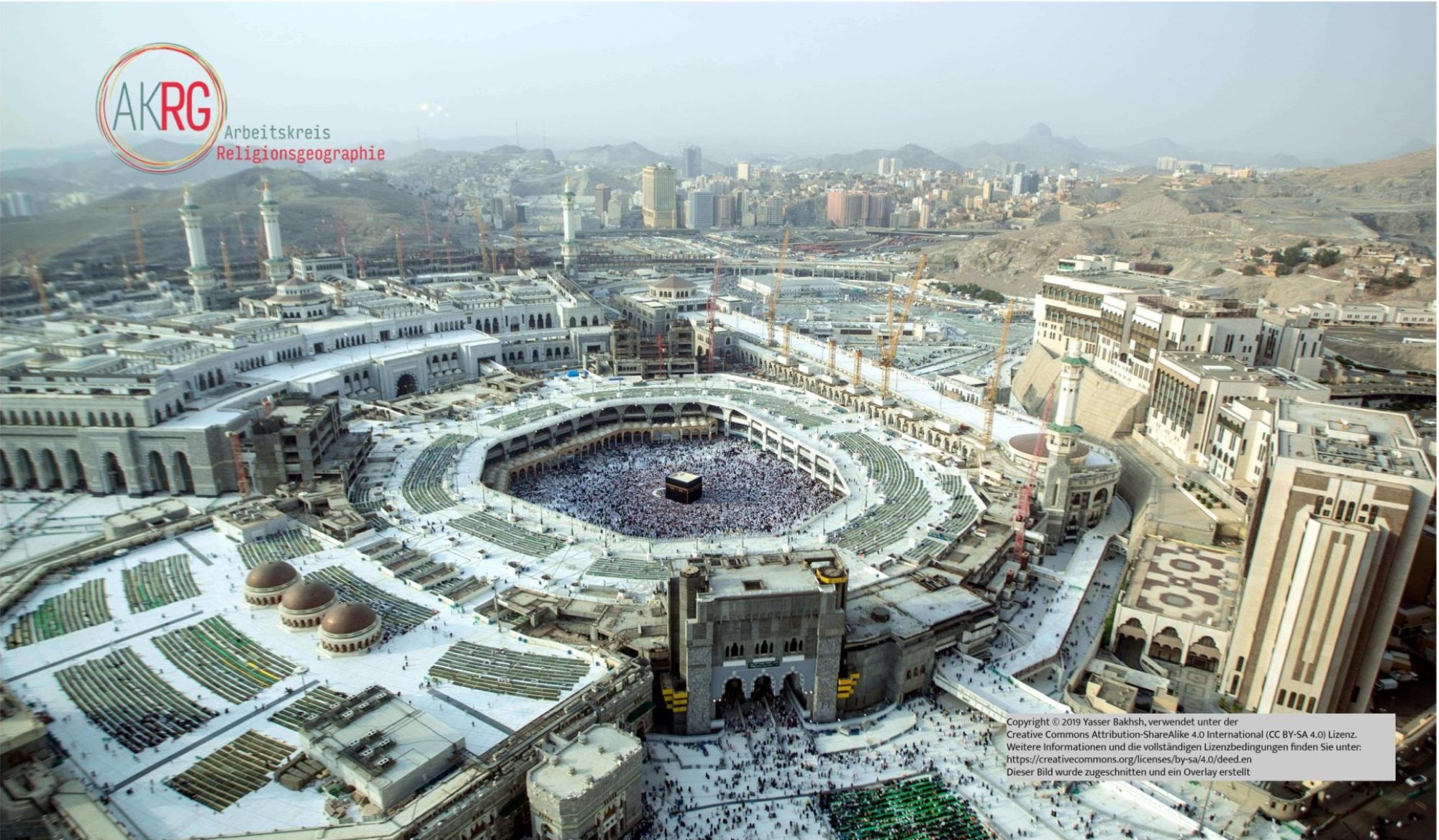„Cosmologies and Space„. Meeting of the Working Group on Religious Geography (1.12. and 2.12.2022 in Bayreuth)
The sub-discipline of the geographies of religion has a long tradition and strong roots within social and cultural geography. In the canon of cultural geographic categories of analysis, religion is just as important with regard to identifications and intersubjective constellations of community and society, as it is with respect to social differences and belongings. Even if work on the geography of religion has recently lost its centrality within German-speaking human geography, religion remains an essential part of conflictual processes in a global perspective. With this group meeting of 2022, the reactivated working group on religious geography would like to set new impulses for geographical research by expanding the human geographic perspective on ‘religion’ in a conceptual, methodological, and epistemological way by focusing on ‘cosmologies’.
We hereby call for abstracts of scientific papers as well as for short spotlights, posters, or panel discussions on the topic of cosmologies and other topics related to the geographies of religion.
The concept of cosmologies serves as an open heuristic to address a series of questions around narrative ways of locating, understanding, justifying, and setting norms for human existence in time, space, and imagined or spiritual spheres. These questions concern, firstly, the articulation and negotiation of conflicting forms of belonging and identity, such as those that increasingly emerge in contexts of globalisation, postcoloniality, and migration. Secondly, it is about related claims of legitimacy of different understandings of human existence and locations in the world, for example when certain some cosmologies are claimed as ‚real‘, ‚legitimate‘, ‚modern‘, ‚universal‘ or ’sustainable‘ over others. Thirdly, the question of cosmologies invites an engagement with approaches to geographical knowledge production that take into account the multiplicity and contingency, but also the power of existence-related narratives. Humanistic-geographical and phenomenological works, which pose the question of cosmologies by examining the ‘home’ of different societies on the planet Earth (e.g. Tuan 1991, 1978, 1974), offer a classical starting point. With reference to religion, the spatial conceptual theologian Sigurd Bergmann (2014) thinks of ‚ein-gelebter Raum‘ in the context of ‚ein-gelebte Religion‘ within such an approach. At the intersection of space, ritual, routine and cosmology, cultural geographer Anton Escher (2004) calls for the writing of maps of cultural meanings by geographers, and religious scholar Thomas Tweed (2006) proposes to understand religion as a ‘crossing and dwelling’. Another approach is offered by works inspired by ecofeminism, for example following Donna Haraway (e.g. 2016), who examines different forms of ‘worlding’ in terms of their powerful effects. Fourthly, links can be established to approaches critical of capitalism and racism as well as to decolonial approaches, which fundamentally question the universalization of Western cosmologies and in contrast call for a ‘pluriversal’ (Mignolo 2018) and ‘multiperspectivist’ (Viveiros de Castro 2012) rethinking of human-world relations (for example Yusoff 2018). In relation to all these approaches, cosmologies become recognizable as narrative ways of relating (to) the world that attempt to fix or mobilize claims on society and space by means of references to the transcendent.
The heuristic ‘Cosmologies and Space’ shows a variety of intersections with research fields in human geography. In order to discuss this topic from theoretical and methodological perspectives, the working group invites contributions.
Possible focal points could be:
– Relationships between space, culture, society, environment and cosmology
– Cosmological narratives from historical and contemporary perspectives
– Articulations of hegemonic and subaltern cosmologies
– Interweaving of cosmologies and the political
– Locating self, subjectivity, and collectivity in the age of globalized spatiality
– Global translations and the global travel of spatial cosmological concepts
– Global North / Global South as well as coloniality and decoloniality seen from a spatial-cosmological perspective
– Cosmologies and urban space
– Cosmologies around the Anthropocene, the Capitalocene, or the Chthulucene
In addition, contributions dealing with other issues around the relationship between religion and space are also welcome.
The working group meeting ‘Cosmologies and Space’ of the AK Religious Geography will take place under the direction of Simon Runkel (Jena), Matthias Gebauer (Bayreuth), Jan Hutta (Bayreuth), Edgar Wunder (Hannover) and Frank Meyer (Dresden) on the 1st and 2nd December 2022 in Bayreuth. It is expected to start at 2 p.m. on Dec 1st (drop-in) and to end at 3 p.m. on Dec 2nd. Exact times and locations will be announced by 01.11.2022 at www.ak-religionsgeographie.de and to all submitters. Paid registration will be available online from November (approx. €25-60, sliding scale).
Please send your abstracts for scientific presentations (15-20 min) of max. 1 page length to religionsgeographie[at]tu-dresden[dot]de by 31.08.2022. Feedback on acceptance will be sent by 30.09.2022. If you are interested in presenting current projects in the form of short flashlight contributions (5-10 min) or posters, please send a short announcement by e-mail to the above e-mail address by 31.10.2022. In addition, we welcome proposals for panel or discussion formats, which should be submitted by 31.08.2022 if possible.

